Films and discussion sessions to give the “Human Rights Film Festival” insights into the working methods of reporters in conflict zones – from the well-known war reporter Marie Colvin to private rapporteurs.
-
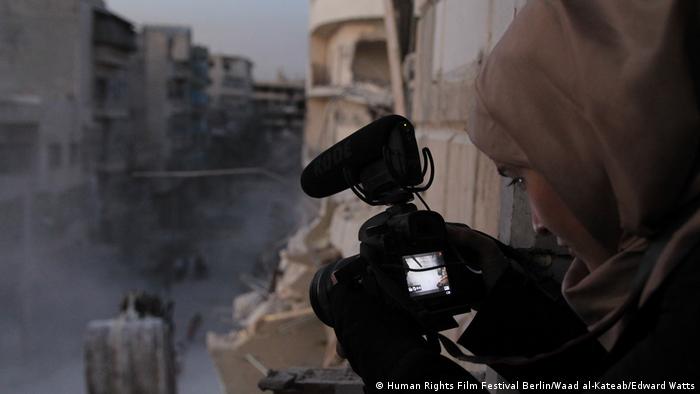
Highlights of the Human Rights Film festival
“For Sama”
The opening film of the Berlin-based “Human Rights Film Festival” (18. – 25.9.2019) is from the love letter of a mother to her daughter. A young Syrian girl documented, as she marries and her child Sama in Aleppo brings to the world, in the middle of the war zone. “For Sama” has been awarded with prestigious prices. In Cannes, he was awarded the prize for best documentary.
-
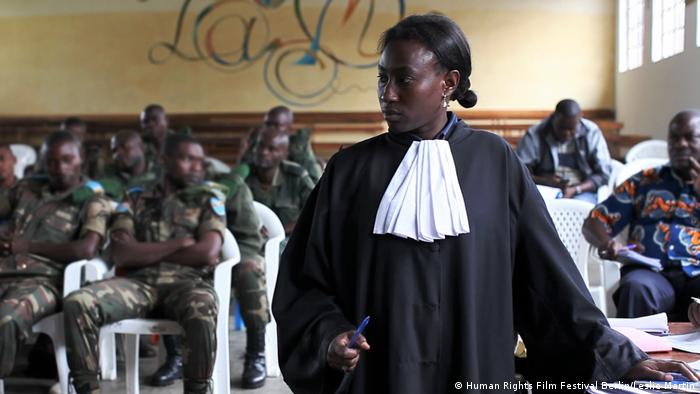
Highlights of the Human Rights Film festival
“The Prosecutors”
Rape in times of war, is dismissed since time immemorial, as “collateral damage”. But the three in this Film, portrayed lawyers know that this is wrong. On behalf of the victims of sexual violence, you fight for justice. Leslie Thomas shot his documentary in the Democratic Republic of the Congo, in Bosnia and Herzegovina and Colombia.
-
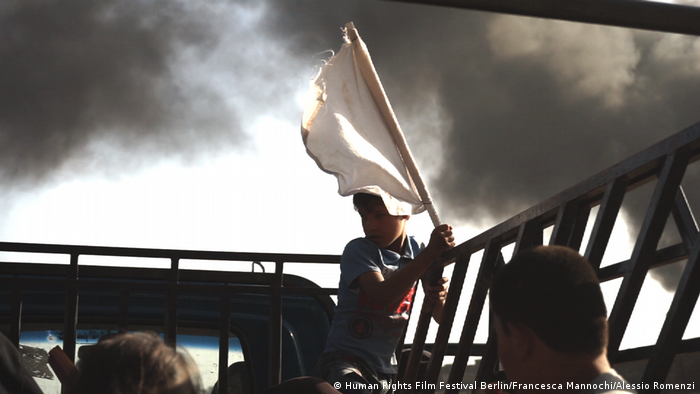
Highlights of the Human Rights Film festival
“ISIS, Tomorrow. The Lost Souls of Mosul”
The terrorist IS militia had occupied the Iraqi Mosul to 2017, for three years. The Islamists, leaving hundreds of thousands of children who have experienced nothing but violence. Many of them were trained assassins to suicide, willing to kill every “infidel”. “ISIS, Tomorrow. The Lost Souls of Mosul” by Francesca Mannocchi and Alessio Romenzi is the document of a lost Generation.
-
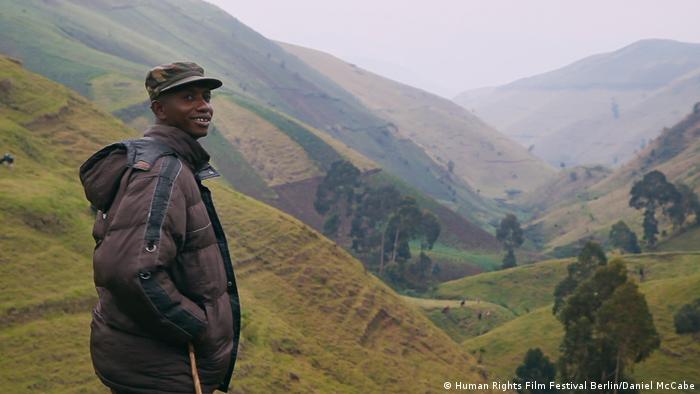
Highlights of the Human Rights Film festival
“This Is Congo”
The photo journalist Daniel McCabe describes in his documentary film the ongoing crisis in the Democratic Republic of the Congo. The Trade of an informer, a military commander, a cutter and a petroleum dealer are:. The Film shows what it means to live in a country that has experienced since its independence in 1960, still not a single peaceful transition of power.
-
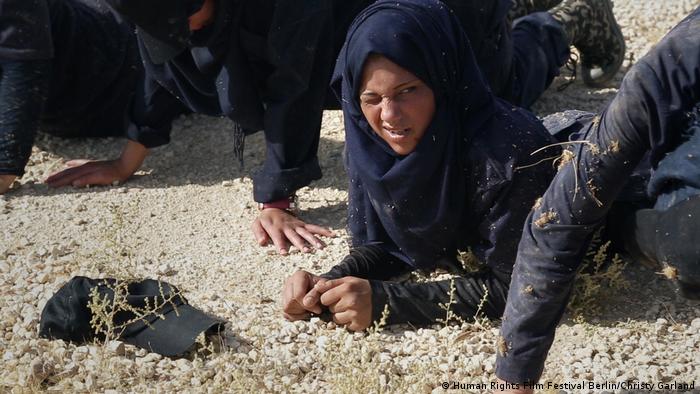
Highlights of the Human Rights Film festival
“What Walaa Wants”
Walaa grows up in a refugee camp in the West Bank – without a mother, because sitting in prison. Walaa would like to join as one of the few women in the Palestinian security forces. The documentary “What Walaa Wants” the canadian Christy Garland accompanied the rebellious young woman who uses her defiant energy, in order to become a police officer, over a period of six years.
-
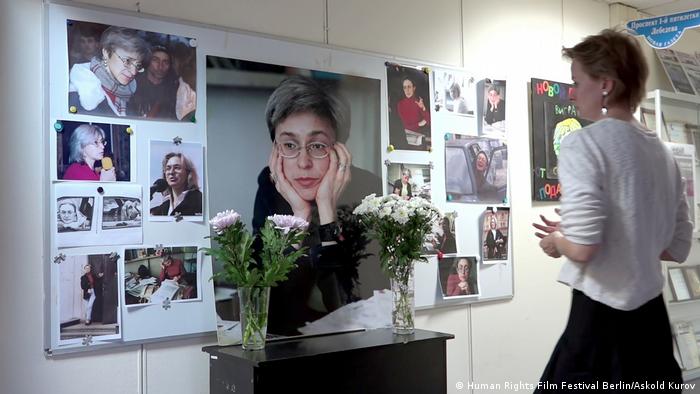
Highlights of the Human Rights Film festival
“Novaya”
The “Novaya Gazeta” was founded in 1990 with money from the Nobel peace prize for Mikhail Gorbachev. Today, the Moscow newspaper is considered to be one of the last publications in Russia, criticizing the Kremlin. Journalists such as Jury Shchekochikhin, Anna Politkovskaya and Anastasia Baburova paid for their work with the life. Director Askold Kurov examines the state of exception in the newsroom.
-
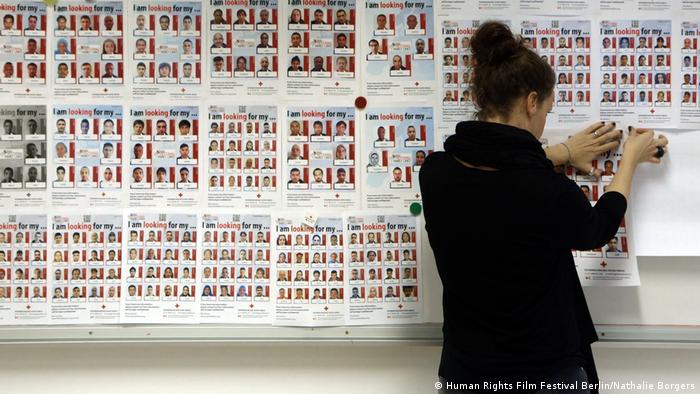
Highlights of the Human Rights Film festival
“The Remains – After the Odyssey”
Refugee ships cross the Mediterranean, many to never come. The Austrian Director Nathalie Borgers decided to illuminate the visible and invisible traces of this often deadly journeys. You met people, help Refugees on the Greek island of Lesvos. It tells the story of a Syrian family that has lost 13 members, whose bodies were never found.
-
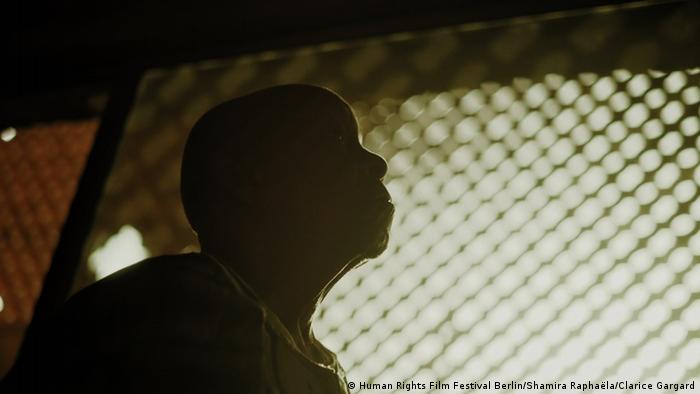
Highlights of the Human Rights Film festival
“Daddy and the Warlord”
The 1988-born journalist Clarice Gargard grew up with the legend, her father had contributed as an Idealist to the reconstruction of his home country of Liberia. But as she tries to find out whether or not the father had to do with the dictator Charles Taylor and his war crimes, she realizes that the truth is more complex than it first appears.
-
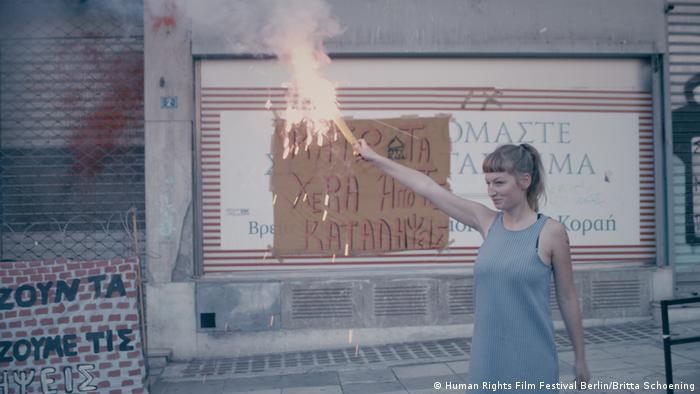
Highlights of the Human Rights Film festival
“#Resistance”,
Resistance, the word can mean a lot of things. The German filmmaker Britta Schoening portrays three young women who are in different circles active: a left-hand house owner, who lives out of solidarity with refugees in Athens, a follower of an extreme right-wing movement in Vienna and a Muslim Poetry-Slammer, fights in Berlin against discrimination.
-
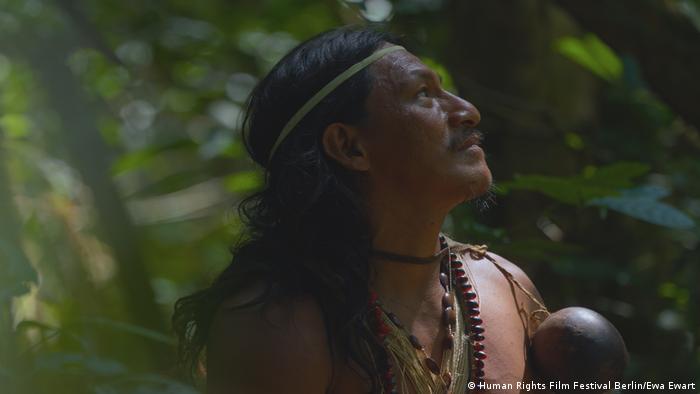
Highlights of the Human Rights Film festival
“The Curse of Abundance”
Ecuador is a country with rich Oil reserves. A third of the reserves is located in the Yasuni national Park, life-important Ecosystem and home to indigenous peoples. To avoid holes, proposed by then-President Rafael Correa of the world community to compensate his country for loss of profit. But it came differently, as the Polish journalist Ewa Ewart evidenced in her documentary.
Author: Elizabeth Grenier
-

Highlights of the Human Rights Film festival
“For Sama”
The opening film of the Berlin-based “Human Rights Film Festival” (18. – 25.9.2019) is from the love letter of a mother to her daughter. A young Syrian girl documented, as she marries and her child Sama in Aleppo brings to the world, in the middle of the war zone. “For Sama” has been awarded with prestigious prices. In Cannes, he was awarded the prize for best documentary.
-

Highlights of the Human Rights Film festival
“The Prosecutors”
Rape in times of war, is dismissed since time immemorial, as “collateral damage”. But the three in this Film, portrayed lawyers know that this is wrong. On behalf of the victims of sexual violence, you fight for justice. Leslie Thomas shot his documentary in the Democratic Republic of the Congo, in Bosnia and Herzegovina and Colombia.
-

Highlights of the Human Rights Film festival
“ISIS, Tomorrow. The Lost Souls of Mosul”
The terrorist IS militia had occupied the Iraqi Mosul to 2017, for three years. The Islamists, leaving hundreds of thousands of children who have experienced nothing but violence. Many of them were trained assassins to suicide, willing to kill every “infidel”. “ISIS, Tomorrow. The Lost Souls of Mosul” by Francesca Mannocchi and Alessio Romenzi is the document of a lost Generation.
-

Highlights of the Human Rights Film festival
“This Is Congo”
The photo journalist Daniel McCabe describes in his documentary film the ongoing crisis in the Democratic Republic of the Congo. The Trade of an informer, a military commander, a cutter and a petroleum dealer are:. The Film shows what it means to live in a country that has experienced since its independence in 1960, still not a single peaceful transition of power.
-

Highlights of the Human Rights Film festival
“What Walaa Wants”
Walaa grows up in a refugee camp in the West Bank – without a mother, because sitting in prison. Walaa would like to join as one of the few women in the Palestinian security forces. The documentary “What Walaa Wants” the canadian Christy Garland accompanied the rebellious young woman who uses her defiant energy, in order to become a police officer, over a period of six years.
-

Highlights of the Human Rights Film festival
“Novaya”
The “Novaya Gazeta” was founded in 1990 with money from the Nobel peace prize for Mikhail Gorbachev. Today, the Moscow newspaper is considered to be one of the last publications in Russia, criticizing the Kremlin. Journalists such as Jury Shchekochikhin, Anna Politkovskaya and Anastasia Baburova paid for their work with the life. Director Askold Kurov examines the state of exception in the newsroom.
-

Highlights of the Human Rights Film festival
“The Remains – After the Odyssey”
Refugee ships cross the Mediterranean, many to never come. The Austrian Director Nathalie Borgers decided to illuminate the visible and invisible traces of this often deadly journeys. You met people, help Refugees on the Greek island of Lesvos. It tells the story of a Syrian family that has lost 13 members, whose bodies were never found.
-

Highlights of the Human Rights Film festival
“Daddy and the Warlord”
The 1988-born journalist Clarice Gargard grew up with the legend, her father had contributed as an Idealist to the reconstruction of his home country of Liberia. But as she tries to find out whether or not the father had to do with the dictator Charles Taylor and his war crimes, she realizes that the truth is more complex than it first appears.
-

Highlights of the Human Rights Film festival
“#Resistance”,
Resistance, the word can mean a lot of things. The German filmmaker Britta Schoening portrays three young women who are in different circles active: a left-hand house owner, who lives out of solidarity with refugees in Athens, a follower of an extreme right-wing movement in Vienna and a Muslim Poetry-Slammer, fights in Berlin against discrimination.
-

Highlights of the Human Rights Film festival
“The Curse of Abundance”
Ecuador is a country with rich Oil reserves. A third of the reserves is located in the Yasuni national Park, life-important Ecosystem and home to indigenous peoples. To avoid holes, proposed by then-President Rafael Correa of the world community to compensate his country for loss of profit. But it came differently, as the Polish journalist Ewa Ewart evidenced in her documentary.
Author: Elizabeth Grenier
The well-known journalist Marie Colvin, the flap with your eye-catching eyes, such as an icon, had died in February 2012, in Homs, as they reported on the attacks of the Syrian regime in the besieged enclave of Baba Amr.
The award-winning Sunday Times reporter was already praised during his lifetime for their courage. The admiration of her Person increased after her death even. Various biographies and films praising their fearless reporting and strong personality.
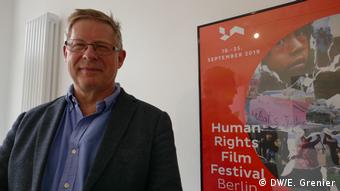
Sean Ryan is now the media Director of the organization “Save the Children”
An example is the Berlin-shown documentary “Under the Wire”. The photojournalist Paul Conroy tells the story of his last Mission with Colvin – together with other companions, Colvins, such as Sean Ryan, former foreign editor of the “Sunday Times”. He was present at the attack on Baba Amr, and survived.
“You had this eagerness to report on atrocities in war,” says Sean Ryan, who appeared as a guest speaker at the Berlin Festival, in an Interview with Deutsche Welle: “they believed that their reports could serve as a deterrent, and that this ‘evil’ people would perhaps do less cruel things.”
Attacks movies while the Baby is asleep in the next room
Another Film of the festival deals with Syria In the hope to get the support of the international community, began Waad al-Kateab early to film the protests in Aleppo as a citizen journalist. She tells her story in the documentary “For Sama”, the opening film of the festival. In cooperation with al-Kateab Edward Watts, Co-directed by.
The documentary begins with an attack by the Syrian army, in which people are looking for in a basement refuge. The mother of a small child takes your camera in Hand to film the events, ask other people in the basement on the Baby. Your child, Sama, which gives the Film its title, remains.
As it turns out, that the attack is bigger than expected, the woman with the camera, what could be happening with your child. Waad al-Kateab has dedicated your Film to your daughter.
The viewer wonders, why a small child is in the midst of all this Chaos. Waad al-Kateab says in her Film, what motivated you to stay with her in this dangerous environment.
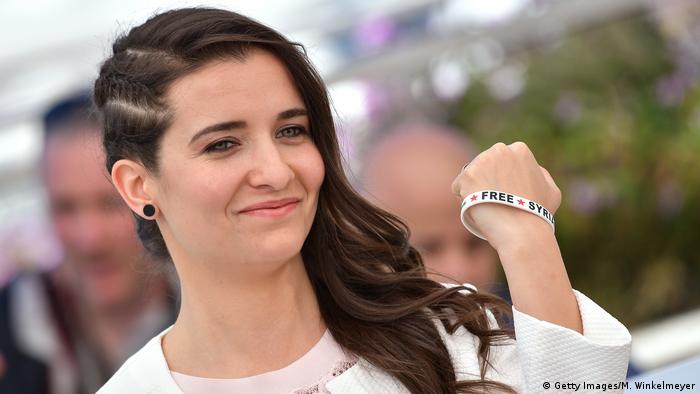
Waad al-Kateab won for their documentary, the “Golden Eye” in Cannes, and an international “Emmy”
The Film tells the story of the young woman since the beginning of the uprising in Aleppo. She and other students hope first of all for the Revolution, and that their peaceful protests can rid the country of Assad’s dictatorial Regime. She falls in love with Kateab in their fellow activist Hamza al -. Shortly thereafter, they married, Waad is pregnant. The two are Central figures of the protest movement in Aleppo.
At that time, the activists still hope for a “new” Syria, but the conflict is coming to a head more and more. As a doctor, Hamza is a makeshift hospital in the rebel stronghold, while Waads video clips are in the world, and millions of seen. To keep your daughter, Sama, and strengthened their Beliefs only.
Of prominent foreign correspondents, to citizen journalists
Of the full of hope, demonstrations of the Syrians during the Arab spring up to the brutal bombings by the regime, in which children and innocent civilians are killed, recalls the sequence of events in the “For Sama” strongly of those in “Under the Wire”.
In spite of his long experience in conflict-affected areas of the photographer Paul Convoy in “Under the Wire points” to the fact that what he did in Syria seen, can be paraphrased with the term “war” hardly: “It’s a bloodbath.” The violent images in the “For Sama” to confirm his impression.
Apart from the common theme of both films differ not only in their style. They also reflect the development of the war reporting clearly. While “Under the Wire” deals with a well-known foreign correspondent, whose idealism associated with personal ambition, told in the “For Sama,” the personal history of an activist, the citizen is a journalist, in your nightmare everyday to find a meaning.
“For Sama” is clearly the result of a long work on the Assembly table, in which a lot of raw material to a strong, human story has been shaped. This distinguishes the Film from the content of so-called citizen journalists, and in particular to the reports quickly and effectively from a war zone. Sean Ryan stresses that it is for the editors of the offered Material from citizen journalists is often difficult to assess how trustworthy the sources are.
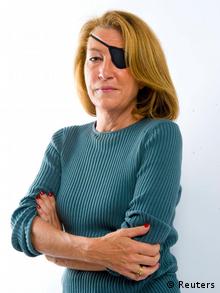
She was one of the most prominent War reporters of the world: Marie Colvin
A further difficulty is the former foreign editor does not see the fact that citizen journalists to reach the same global effect as prominent journalists – what had clearly been one of the Strengths of Marie Colvin.
Ryan remembered in Berlin to an important event in Colvins career. In 1999, she refused during the East Timor conflict in Indonesia, to leave a besieged area in which around 1,500 women and children were trapped. UN officials said later that the Colvins have contributed to international reporting significantly to the rescue of these people: “From this Moment on, you had the feeling that you do not discard their work only testimony of atrocities, but also can save lives,” says Ryan.
Even if your coverage can be seen in East Timor on the one hand, as a source of inspiration for journalists, so the death of Marie Colvin and other journalists has held a few news stations to continue to send correspondents in certain areas of conflict. As a result, many freelancers are risking their lives. You often have to do without the protection of established news agencies.
On the state of emergency, in addition to
Francesca Mannocchi, Co-Director of the “ISIS, Tomorrow – The Lost Souls of Mosul” was on the Berlin “Human Rights Film Festival”, to talk about their work. In a discussion on the work in conflict areas, she gave an insight into their view of war reporting.
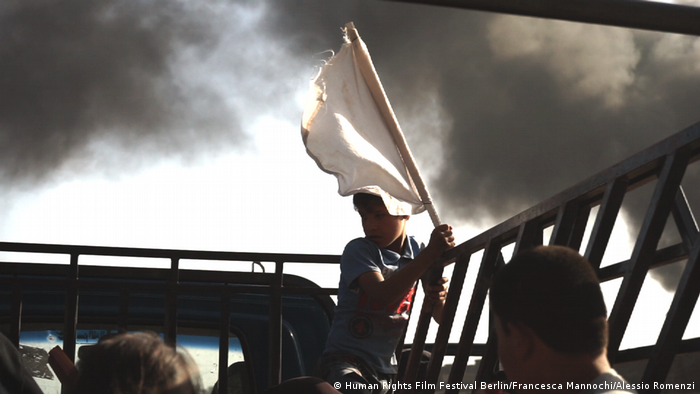
A scene from “ISIS, Tomorrow” by Francesca Mannocchi and Alessio Romenzi
Her documentary focuses on the Situation in the Iraqi city of Mosul after the defeat of the terrorist organization “Islamic state”. She conducts Interviews with children who were recruited either from the IS or their families in the conflict have lost. So, it is clear that the seeds of terror in the minds of these children (and widows) are still present. “Is is just a Logo,” said Mannocchi. “Even if the Name changes, it will continue the same ideology more.”
Mannocchi says that you’ve changed your personal perspective on conflict reporting – not least because of the experience through this Film: “One of the mistakes of our journalistic approach is that we have to turn the camera off, as soon as the conflict is over,” she said to the DW.
“Everything in the news is always presented as a sudden emergency, when he would have come out of nowhere, without any connection with the past and the future,” said Mannocchi.
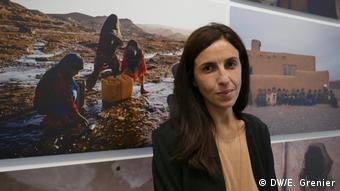
The Italian journalist Francesca Mannocchi has reported about conflicts in Iraq, Syria, Afghanistan and Libya
Mannocchi is the Belief that complex post-war situations have to be investigated, if one wants to go beyond the media stereotypes and beyond. Perhaps this would have even a Chance to avoid the policy, recurring errors. Mannocchi says that the media avoid the complexity of the issues by placing your focus on “emergencies” – and the Islamists are even an advantage: “when are we going to learn something from the past?” she asks.
The terrorists would have gained an advantage, and refers to political developments such as the US withdrawal from Iraq – without a comprehensive Plan. Within less than four years, I built a community of 20,000 supporters.
“As a journalist, I try to link these points,” says Francesca Mannocchi. “My goal is not to give simple answers. And: I would like to convey the same doubts and Dilemmas that I experience as well.”
The “Human Rights Film Festival” in Berlin takes up to 25. September, 2019.














